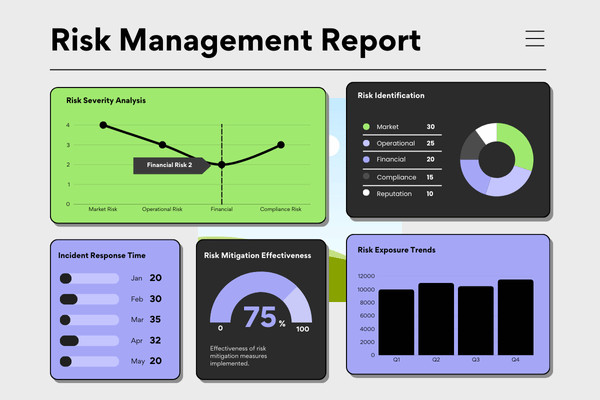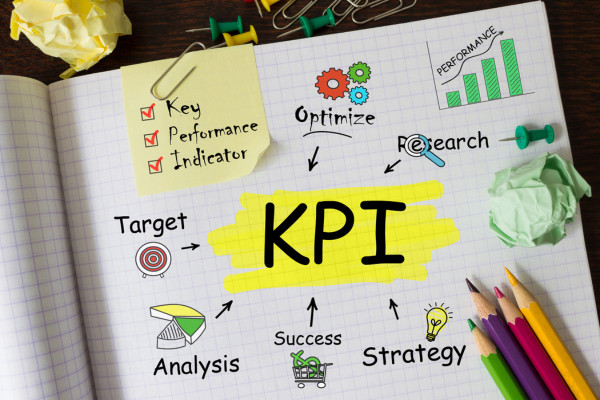
This post is part of the "Strategic Growth Series: 11 Key Operational Areas for Success" series, which covers the 11 essential operational areas that every service-based business needs to master. In this segment - segment #5, I focus on why every business needs a risk management plan and how to create one to protect your business.
Introduction: In the ever-changing landscape of business, risk is an inherent part of the journey. Whether it’s financial uncertainty, legal challenges, operational disruptions, or market volatility, every business faces risks that can threaten its success. The key to navigating these uncertainties is having a robust risk management plan in place. A well-crafted plan helps you identify, assess, and mitigate potential risks, ensuring that your business remains resilient in the face of challenges. In this post, I’ll explore why every business needs a risk management plan and how to create one that safeguards your business.
Section 1: Understanding Business Risks. Business risks come in many forms, and understanding them is the first step toward effective management. Common types of risks include:
- Financial Risks: These involve potential losses due to economic downturns, cash flow issues, or poor financial management. They can affect your ability to meet obligations and invest in growth.
- Operational Risks: These arise from internal processes, systems, or people and can disrupt your day-to-day operations. Examples include software failures, equipment breakdowns, or employee errors.
- Legal and Compliance Risks: These involve the possibility of legal action due to non-compliance with laws, regulations, or contracts. Failing to comply can result in fines, lawsuits, or reputational damage.
- Market Risks: These are external risks that arise from changes in the market environment, such as shifts in customer preferences, increased competition, or economic downturns.
- Reputational Risks: These involve the potential loss of reputation due to negative public perception, customer dissatisfaction, or scandals. A damaged reputation can lead to loss of customers and revenue.
Section 2: Why Every Business Needs a Risk Management Plan. A risk management plan is essential for several reasons:
- Proactive Risk Identification: A risk management plan allows you to proactively identify potential risks before they become major issues. By anticipating challenges, you can take steps to mitigate them.
- Enhanced Decision-Making: Understanding the risks associated with different business decisions helps you make more informed choices, balancing potential rewards against potential downsides.
- Business Continuity: A risk management plan ensures that your business can continue operating even in the face of unexpected disruptions. It helps you develop contingency plans and maintain stability during crises.
- Financial Protection: By identifying financial risks and creating strategies to mitigate them, you can protect your business’s financial health and ensure long-term viability.
- Compliance Assurance: A risk management plan helps you stay compliant with laws and regulations, reducing the likelihood of legal issues and fines.
Section 3: How to Create an Effective Risk Management Plan. Creating a risk management plan involves several key steps:
- Identify Potential Risks: Start by brainstorming all possible risks that could impact your business. Consider financial, operational, legal, market, and reputational risks.
- Example: If you run an e-commerce business, consider risks like website downtime, cyberattacks, and client disputes.
- Assess Risk Impact: Evaluate the likelihood and potential impact of each risk. Prioritize risks that could have the most significant effect on your business.
- Example: A cyberattack could have a high impact on your business, leading to data breaches and loss of customer trust.
- Develop Mitigation Strategies: For each identified risk, develop strategies to minimize its impact. This could involve preventive measures, contingency plans, or transferring the risk through insurance.
- Example: Implement cybersecurity measures, such as firewalls and encryption, and create a response plan for data breaches.
- Monitor and Review: Regularly review your risk management plan to ensure it remains relevant. Update it as your business grows, and new risks emerge.
- Example: Conduct quarterly risk assessments and adjust your plan based on changes in your business environment.
Section 4: The Benefits of a Strong Risk Management Plan. Having a robust risk management plan offers several benefits:
- Increased Confidence: Knowing that you have a plan in place to handle potential risks gives you greater confidence in making strategic decisions and pursuing growth opportunities.
- Improved Business Reputation: Demonstrating a proactive approach to risk management can enhance your business’s reputation with customers, investors, and partners.
- Better Resource Allocation: By identifying and prioritizing risks, you can allocate resources more effectively, focusing on areas that require the most attention.
- Long-Term Success: Ultimately, a strong risk management plan helps ensure the long-term success and sustainability of your business.
Conclusion: Every business, regardless of size or industry, faces risks. Having a comprehensive risk management plan is essential to navigate these uncertainties and protect your business’s future. By identifying potential risks, assessing their impact, and developing strategies to mitigate them, you can safeguard your business and ensure its resilience.
FREE RESOURCE
Ready to protect your business from uncertainty and ensure long-term success? Download my FREE Business Strategy Self-Audit Workbook by clicking HERE. This comprehensive guide covers all 11 essential operational areas every service-based business must master—including Risk Management. Use it to identify potential risks, develop mitigation strategies, and create a robust plan that keeps your business resilient and thriving.
JOIN THE CONVERSATION!
What’s the biggest risk your business has faced, and how did you navigate it? Do you have a risk management plan in place, or is this an area you’re still working on? Share your experiences and insights in the comments—I’d love to hear how you approach safeguarding your business!











